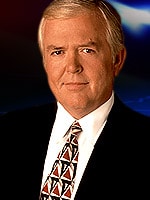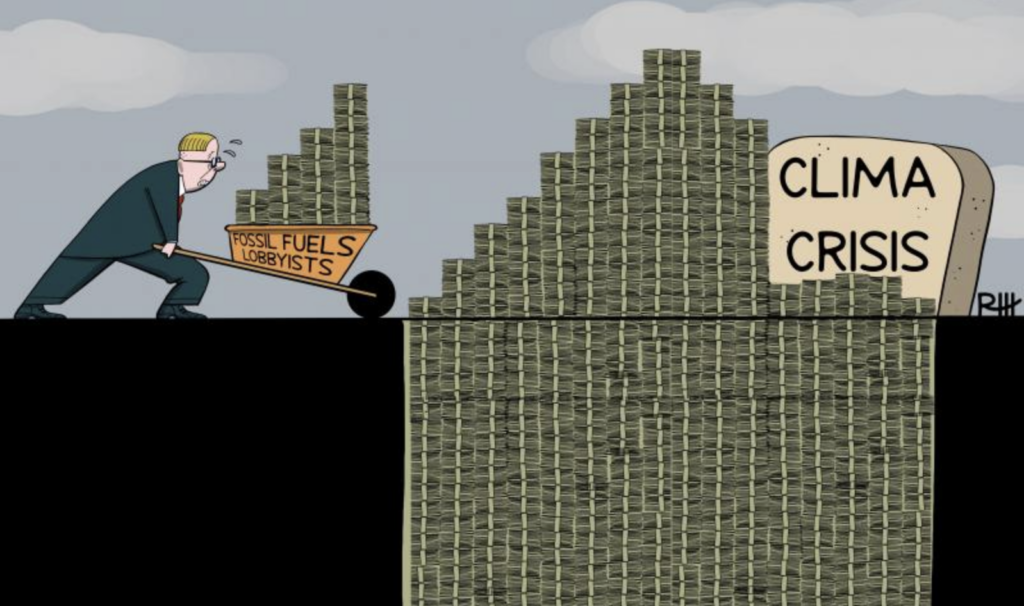Lou Dobbs interviewed Gavin Schmidt, Michael Mann and Alan Robock 
CNN SHOW: LOU DOBBS TONIGHT
6:00 PM EST July 13, 2006 Thursday
DOBBS: The wildfires raging in Southern California tonight could be the latest evidence of global warming, according to research scientists at the University of Arizona in Tucson. The report published this month found a, quote, “dramatic and sudden increase in wildfire activity in the mid-’90s and ’80s.” One of the scientists said it is the first indicators of the impact of climate change in this country. Joining me now to discuss what can be done to minimize, to mitigate the impact of climate change, three of the world’s leading climate scientists – Michael Mann, director of the Earth Systems Science Center at Penn State University, Gavin Schmidt of the NASA Goddard Institute for Space Studies at Columbia University, and Alan Robock, climate scientist professor at Rutgers University. And we thank you all for being here. Let me turn first this idea of a consensus on global warming. Is there one or is there not?
MICHAEL MANN, CLIMATE SCIENTIST: Well, there’s clear agreement among the leading scientists in this field that humans are having an influence on the climate. There are several different lines of evidence that are independent. Just the basic physics of how the atmosphere and the climate system works tell us that increasing greenhouse gas concentrations should warm the surface. DOBBS: Well, if you all as leading scientists, with your best science, your best minds working in the field, agree that there is global warming and that greenhouse gases emissions are responsible for all or part of it, what can we do, Gavin, to deal with the issue? GAVIN
SCHMIDT, CLIMATE SCIENTIST: First of all, we have to understand the physical basis for those changes. We need to understand the greenhouse gases, we need to understand the effects of ozone and black carbon. And then, once we’ve understood the question, we can come back and say, well, what are the behaviors that we have as a society that are creating these problems? And then what we need to do is stop doing those behaviors and transfer our skills to another kind of… DOBBS: To get on with the solution.
SCHMIDT: Right, to get on with the solution. DOBBS: Alan, the U.S. Senate Committee on Environment and Public Works put out a press release, basically taking James Hanson to task, one of the noted climate scientists, one of your peers, to – in your case more than a peer – and whom I’ve talked with and whom I’ve appreciated. They’re taking him to task for supporting Tom Brokaw’s documentary on Discovery because he’s got ties to Al Gore, to all sorts of radical liberal bad people. How do you react to that kind of thing?
ALAN ROBOCK, CLIMATE SCIENTIST: Jim Hanson has spent his life studying climate change, and he recognizes that humans are the strongest thing on the planet to cause climate. Now, we’re stronger than natural variability, and he’s sick of people not doing anything about it. He things it’s time to stop just studying it. Although we do have to study it to deal with it. DOBBS: I’m with Jim, by the way. I mean, you guys have put your best efforts forward, you’ve come up with a – you may – let’s be honest, it’s science. It could be there is something wrong with the conclusion, but why take the risk?
ROBOCK: That’s right. I’ve taken a lot of money from the government to do my research. DOBBS: Let me make a note of that. ROBOCK: If I discover a danger to society, what they want me to do is tell them about it, not to keep quiet.
DOBBS: Well, what are we going to do? Let’s on this broadcast tonight, LOU DOBBS TONIGHT, this broadcast decides global warming is caused by emissions. That discussion is over here. Let’s talk about what we should do next. MANN: Well, you know, first we have to start – we have to stop the sort of the false debate that has been placed in the public discourse about the science. The science is agreed upon. And unfortunately, because it’s an inconvenient conclusion… DOBBS: You’re so used to dealing with this. I’m saying to you, we’ve moved beyond it. The false debate is over. We’re going to focus on what pitiful little people on this planet can do to change the outcome.
(CROSSTALK)
ROBOCK: This is a hard problem because it has to deal with our basic source of energy, coal and oil. But it’s a simple problem because we know what to do about it. We can develop new sources of energy. And we have to develop a lot of little things, it’s not just one solution. So we can use more solar power, more wind power, more biofuels – not just corn but also switchgrass. I mean, President Bush mentioned switchgrass in his State of the Union. That’s burning – turning cellulose into fuel. There’s a lot of different things that we can do, and if we do each of them separately, the total amount of emissions will go way down. DOBBS: Well, let me ask you this, why in the world aren’t our research institutions, our – some of our technology companies, why aren’t our universities driving forward? This country, you used to be able to rely upon innovation from surprising quarters in all of those places.
ROBOCK: We need leadership from the top. The current budget is cutting research in these things, in energy efficiency and other sources. And they’re spending a lot of money in the so-called energy bill giving it to the oil companies. DOBBS: Right, $12 billion worth of subsidies, $7 billion in royalties while they’re posting record profits. MANN: You know, Lou, there are other simple things we can do. Our fuel efficiency. There’s absolutely no reason that we have to be driving around in SUVs. DOBBS: Well, people might argue with that. I know that’s a popular response, but people working out in the country, I mean, have got to have big vehicles, whether they’re SUVs or whether they’re trucks. MANN: Some people need them. DOBBS: Right.
ROBOCK: We can make save vehicles that are much more fuel- efficient if we developed them. We know the technology to do that.
DOBBS: This is a can-do country, Gavin. This is a country mobilized with good leadership that can do things. Now, let me ask you this, can we do enough to really turn the tide, if you will forgive the cliche, in climate change?
SCHMIDT: There’s going to be an element of climate change that’s going to continue to happen anyway, because right now the planet is trying to catch up with what we’ve already done to it. So what we’re talking about is we’re not going to be able to stop climate change; we’re just trying to prevent it from reaching those worst-case scenarios where you really have serious problems with ice sheet melting and sea level rise. DOBBS: So it’s your best judgment that this is reparable?
SCHMIDT: The worst cases are avoidable. Reparable to going back to the way we were?
DOBBS: We’re out of time.
SCHMIDT: That’s probably impossible.
DOBBS: Time. I’m going to ask if you all could join us again here in the next week or two, and if we can start focusing on real solutions.
SCHMIDT: That would be great.
MANN: Sure.
DOBBS: What do you think?
ROBOCK: Sure.
DOBBS: If you’re up for it, we are. Thank you. Good to have you with us. Still ahead here, we’ll have the results of our poll tonight. More of your thoughts, including your rising disappointment with our elected officials. I can’t imagine why. Stay with us.
Subscribe to our newsletter
Stay up to date with DeSmog news and alerts






